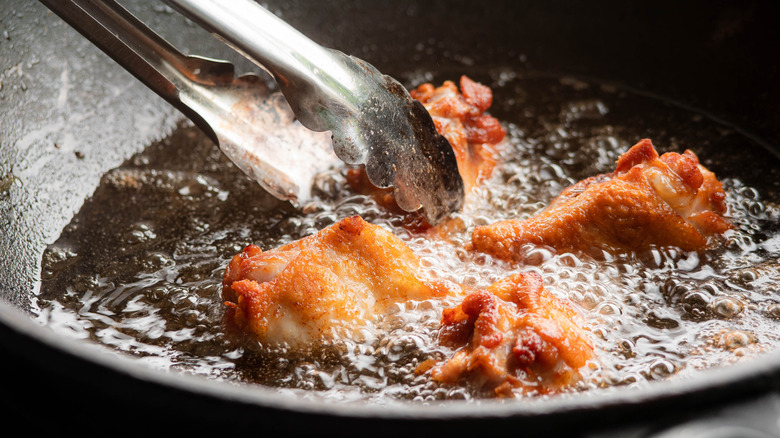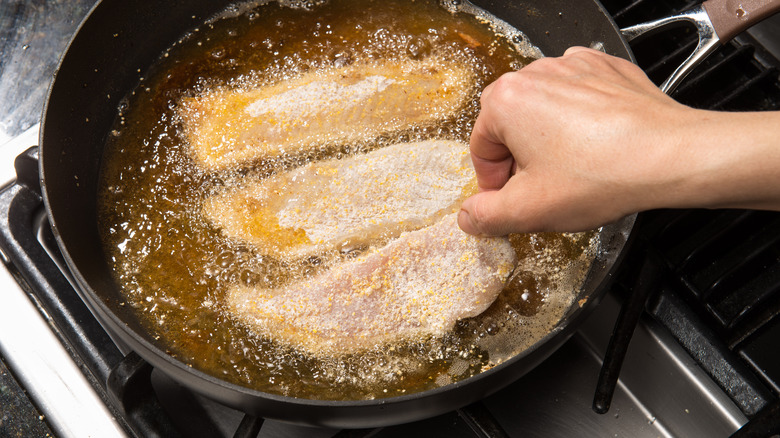The Oil Mistake To Avoid When Shallow Frying Food
Otherwise known as pan frying, shallow frying offers crisp, yet juicy food without having to go through the struggle of deep frying it. The method gives meat, poultry, fish, or vegetables a nice crunchy outside while maintaining the moisture inside. Simpler than deep frying, the healthier cooking technique requires less oil and is easier to clean up. That said, there is one commonly made mistake you should know about before partaking in this process: Allowing the oil to reach its boiling point.
When frying food, choosing an oil with a high smoke point will prevent your food from burning. If the oil goes above that temperature when frying, your food will burn and take on the bitter taste of the oil. Cooking oil that reaches its smoking point also causes the oil's nutrients to be destroyed, releasing compounds that are harmful to your health.
Watch the oil to see how it reacts as it heats up. While oil that's below its smoking point will simmer and bubble like usual, oil that's reached its smoking point will stop simmering and produce smoke instead.
Follow these tips when shallow frying food
If you want to prevent your food from getting burnt easily, use oils that have a higher smoke point and neutral taste. Canola, peanut, and avocado oils are popular choices, but safflower oil is an underrated gem. To get that nice crisp on the outside of your food, you'll need to see if the oil is ready for frying. With a thermometer on hand, check to see if the oil is between 350 and 365 degrees Fahrenheit.
Alternatively, you can also sprinkle a little water on top to gauge its reaction — if the water simply sits on top of the oil, it's not ready yet. If it sizzles immediately, go ahead and add your food to the pan. Gently place the food in the pan to avoid any splatters or splashes that can burn you.
Although water is a great way to ensure that your oil is hot enough, it shouldn't be on any of the food added to the pan. Using a breading or flour coating on food before frying will block off patches of moisture that prevent food from properly crisping.

